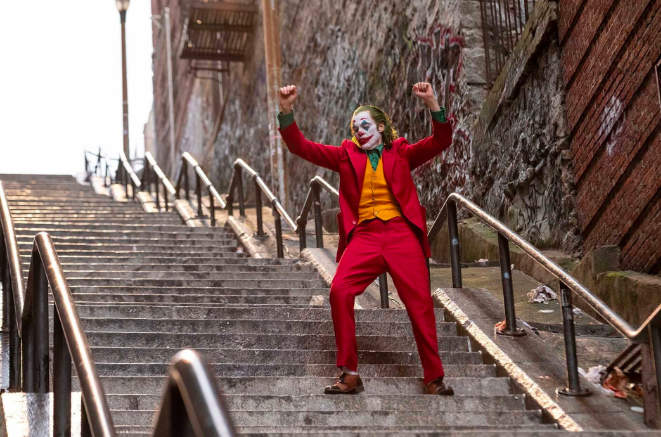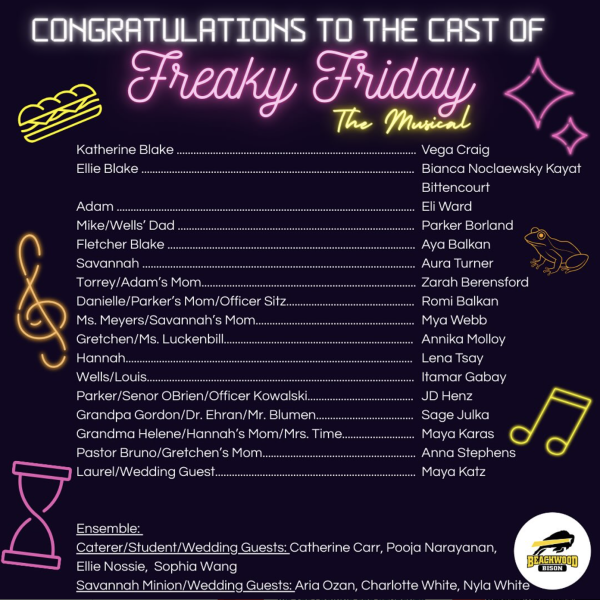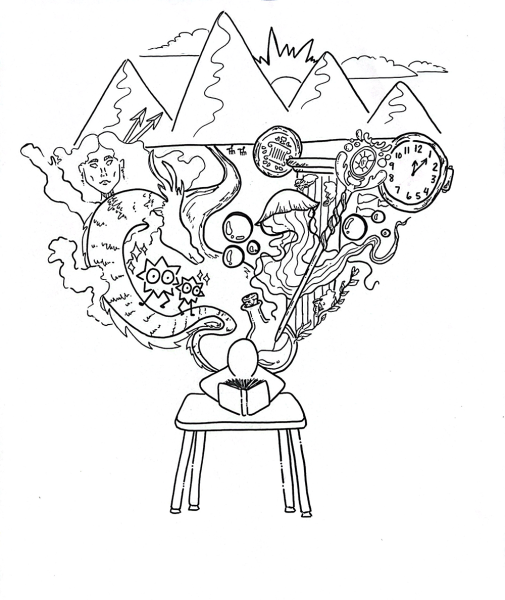‘The Joker’ Transforms Cartoon Villain into Complex Character Study
Warner Bros. Entertainment Inc.
“The film is centered around Arthur Fleck (Joaquin Phoenix), a mentally disturbed rent-a-clown.”
Most superhero movies are pretty clear cut. There’s a hero with an iron will to protect people, and a cunning villain who sees the conflict like a four-dimensional chess game.
These external conflicts are satisfying to watch, as they are simple and clear cut. Joker(2019) takes a different approach, giving audiences a complex psychological thriller.
The film is centered around Arthur Fleck (Joaquin Phoenix), a mentally disturbed rent-a-clown. He’s not just a professional clown, he is also viewed as a clown by the society in which he lives. He often finds himself the punching bag for those stronger than him.
One could say that to the people of Gotham City, Arthur himself is a joke. One of the reasons for this is his disorder, medically known as pseudobulbar disorder, which causes him to break into uncontrollable and rather unsettling laughter, especially in moments of high stress.
The film’s inciting incident is when Arthur is bullied by a trio of young Wall Street workers who believe his laughter to be mocking them. In self defense, he kills all three of them with his gun, and the disgruntled working class of the city begin to see him in a heroic light.
The film is permeated with an eerie mood. Most of the scenes are set in run down, filthy places you may find in an inner city. Faded colors, walls vandalized with graffiti, poor lighting and a general feeling of hopelessness run through each scene.
The soundtrack is mostly composed of long draws of violin, creating an uneasy feeling. This, combined with lengthy, uncut camera shots, makes it impossible to sit still. All of these elements create an atmosphere that I can only describe as uncomfortable.
One of the things that really shines in the film is the acting. Phoenix does a great job here, as he really communicates the desperation and loneliness of this character. One of the most important things he gets right is the aforementioned uncontrollable laughter.
It sounds creepy, and his face goes right back to the way it was before breaking into laughter, emphasizing the unintentional nature of this expression. It is also later established in the film that Arthur has vivid hallucinations, making him an unreliable narrator and making the audience dwell on what is and is not real.
Over the course of the film, the audience sees Arthur Fleck slowly break down, losing everything he has. Therefore, when he does something violent or creepy, I still found myself rooting for him. I think this speaks volumes to the film’s excellent character development.
Todd Phillips’ Joker is a fresh take on an old character. Rather than presenting as a mad genius, this film puts the Joker under a microscope and presents a deep character study. It shows Fleck’s slow downward spiral into the abyss, depicting how a man rejected by society easily becomes a force that destabilizes it.
My only gripe with this film, and it isn’t so much a gripe, is that it doesn’t feel like a DC film at all. It is easy to forget the protagonist is based on the same character seen in Batman: The Animated Series or Christopher Nolan’s The Dark Knight. Instead, it feels more akin to a psychological thriller such as Taxi Driver. Overall, I give Joker (2019) a 85/100.

Joey began writing for the Beachcomber in 2017. He covers movie and game reviews. In addition to writing for the Beachcomber, he plays video games.












